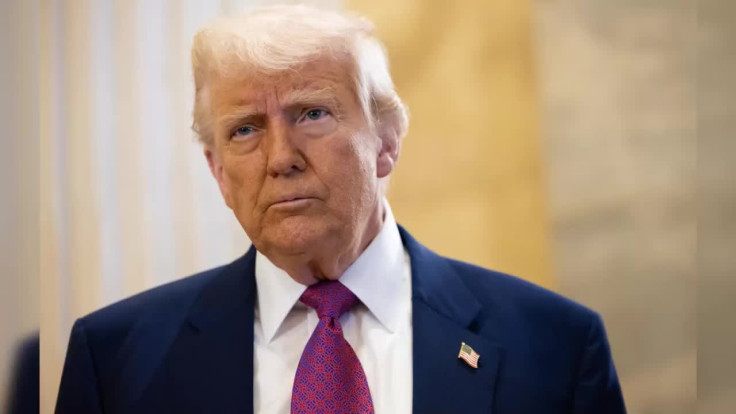
President Donald Trump reportedly ended an oil-for-deportees deal with Venezuela's authoritarian government in order to get some Miami Republicans to support his "big, beautiful" tax cut and spending bill.
Axios reported the decision was a "matter of political necessity and a nod to his secretary of state, Marco Rubio," who is a longtime critic of president Nicolas Maduro.
The outlet specified that the lawmakers threatening to vote against the bill were Miami's three Cuban-Americans —Mario Diaz-Balart, Maria Elvira Salazar and Carlos Gimenez— who are also heavily critical of the South American country's regime.
"The Cubans didn't have to tell us they were a 'no' again. We just knew it," said a third administration official involved in the discussions. "We knew they wouldn't fold on this," a White House source told the outlet.
Rubio announced the decision on Wednesday night, writing on his personal X account that "the Maduro Biden oil license in Venezuela will expire as scheduled next Tuesday May 27th." Salazar quickly thanked Rubio for "speaking with the strength this moment deserves."
"Doing business with Maduro means filling the pockets of a criminal narco-regime that represses, incarcerates and exports terror through Tren de Aragua. With these news, the U.S. sends a clear message: we stand with the Venezuelan people and freedom. Not another dollar for tyrants!"
¡Gracias, Secretario, por hablar con la fuerza que exige el momento!
— María Elvira Salazar 🇺🇸 (@MaElviraSalazar) May 22, 2025
Hacer negocios con Maduro es llenar los bolsillos de un narco-régimen criminal que reprime, encarcela, y que exporta terror a través del Tren de Aragua.
Con esta noticia, Estados Unidos manda un mensaje… https://t.co/R0H5sHBI9w
The announcement stood in contrast with that of envoy Richard Grenell, who had announced a 60-day extension of Chevron's license to export oil from Venezuela.
In that context, the Miami Herald claimed that the administrations are "quietly negotiating a high-stakes deal" to allow "Chevron to continue exporting Venezuelan oil to the U.S. in exchange for Caracas accepting the return of thousands of Venezuelan migrants likely to lose their legal status in the coming weeks," a reference to the Supreme Court ruling from this week allowing the Trump administration to revoke Temporary Protected Status for hundreds of thousands of Venezuelans living in the U.S.
The outlet added that Maduro was also seeking "significant political and economic concessions," including being removed from the U.S. Treasury sanctions list and have drug-trafficking related charges dropped. In addition to accepting deportees, Maduro would have also reportedly granted broad oil and mining concessions to U.S. companies.
Gimenez, Rubio and other officials, in contrast, countered arguments by Grenell, Chevron and others, who said China would benefit from preventing the company from operating in the country.
Chevron's oil operations, protected by a Treasury Department exemption despite sanctions, provide about 20% of Venezuela's total output and serve as a key economic channel for the country.
© 2025 Latin Times. All rights reserved. Do not reproduce without permission.





